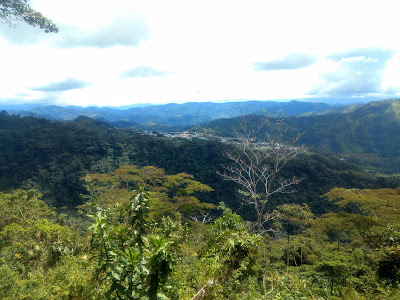[Listen to an audio version of this blog entry here.]
For some people, the move to a totally digital, online world is a delightful development.
Procedures that once required us to physically go somewhere can now be done via the swipe of a screen or the touch of a button with next to no exertion needed.
Such advancements are presented to us as timesavers that allow for greater efficiency with what were heretofore tedious tasks.
The same goes for shopping, although I do prefer to go out and make in-person purchases, especially for clothing and groceries.
There are, though, downsides to such digital delights.
For starters, there's troubleshooting. When there's a problem, getting to communicate with an actual human being can be quite the task.
Indeed, with some businesses and institutions, it's almost as if they don't want you to be able to make contact with a living person. This is — surprise, surprise — particularly so when it comes to making a complaint: A policy of, 'frustrate the complainant to the point where he/she will just give up'.
The social media giants are masters at this. Perhaps this is because many employees in Silicon Valley — and its offshoots — aren't really social beings and thus are unable to properly engage with people.
So while smartphone apps and electronic payments may have made regular banking a breeze and resulted in fewer fees, there are other prices to pay.
 |
| Opting out of the digital world is next to impossible. |
A con-venience
In the world of banking and bill-paying, this is certainly the case. Many transactions can now be done via a computer or smartphone, so no more hours are lost waiting in a queue. And I'm all on for reducing the number of queues I have to stand in.The same goes for shopping, although I do prefer to go out and make in-person purchases, especially for clothing and groceries.
There are, though, downsides to such digital delights.
For starters, there's troubleshooting. When there's a problem, getting to communicate with an actual human being can be quite the task.
Indeed, with some businesses and institutions, it's almost as if they don't want you to be able to make contact with a living person. This is — surprise, surprise — particularly so when it comes to making a complaint: A policy of, 'frustrate the complainant to the point where he/she will just give up'.
The social media giants are masters at this. Perhaps this is because many employees in Silicon Valley — and its offshoots — aren't really social beings and thus are unable to properly engage with people.
'A person can be logged out of the system just as easily as he/she logged in. From social credit to socially discredited.'In any case, we're not usually talking about life-or-death concerns when it comes to social media. In other areas, such as healthcare and security, the ability to talk to a living person in real time is usually more critical when problems arise.
Controlled
There's also the rather important matter of simply being able to function in today's society. Those who fully embrace the digital drive often portray it as a way 'to be in greater control of our lives'. This might be so for the likes of Elon Musk or Mark Zuckerberg — the elite who have access to the controls — but for us mere plebs, not quite.So while smartphone apps and electronic payments may have made regular banking a breeze and resulted in fewer fees, there are other prices to pay.
Just how in control can one be of one's finances when somebody else is virtually holding the purse strings?
There have been a number of alarming instances in the not-very-free free world where citizens have had access to their accounts frozen for the crime of dissenting against the government of the day (see, for example, https://www.nytimes.com/2022/02/22/world/americas/canada-protest-finances.html, as well as the case of English journalist Graham Phillips, https://www.bbc.com/news/uk-england-nottinghamshire-62308528 & https://www.dailymail.co.uk/debate/article-11065067/PETER-HITCHENS-Freedom-means-freedom-nasty-people.html).
There have been a number of alarming instances in the not-very-free free world where citizens have had access to their accounts frozen for the crime of dissenting against the government of the day (see, for example, https://www.nytimes.com/2022/02/22/world/americas/canada-protest-finances.html, as well as the case of English journalist Graham Phillips, https://www.bbc.com/news/uk-england-nottinghamshire-62308528 & https://www.dailymail.co.uk/debate/article-11065067/PETER-HITCHENS-Freedom-means-freedom-nasty-people.html).
How wonderfully democratic and liberal, eh?
Fair enough, denying people access to their bank accounts predates today's digital age.
Fair enough, denying people access to their bank accounts predates today's digital age.
However, in the past, payment in cash for pretty much anything was still an option. In contrast, in most high-income nations today, it has become extremely difficult to pay with notes and coins (this isn't quite the case yet in Colombia, thankfully).
In such an environment, a person can be logged out of the system just as easily as he/she logged in. From social credit to socially discredited.
There are those who see little wrong with this. The argument is that law-abiding citizens have nothing to worry about. The "democratic" West's checks and balances are a bulwark against injustices.
That's great in theory. Yet, as mentioned above regarding the freezing of bank accounts of people who have not been convicted of a crime and as seen with the actions taken against those who refused, with solid arguments, to take covid-19 vaccines, the empirical evidence is far from reassuring.
Yes, there are few things in this world over which we have complete control. However, the digitalisation of many aspects of our daily lives is moving us to a position where we'll have no real control over hardly anything.
With each new technological convenience managed by largely invisible, unaccountable actors, we have a further dissolution of what's left of an individual's independence.
In such an environment, a person can be logged out of the system just as easily as he/she logged in. From social credit to socially discredited.
There are those who see little wrong with this. The argument is that law-abiding citizens have nothing to worry about. The "democratic" West's checks and balances are a bulwark against injustices.
That's great in theory. Yet, as mentioned above regarding the freezing of bank accounts of people who have not been convicted of a crime and as seen with the actions taken against those who refused, with solid arguments, to take covid-19 vaccines, the empirical evidence is far from reassuring.
Yes, there are few things in this world over which we have complete control. However, the digitalisation of many aspects of our daily lives is moving us to a position where we'll have no real control over hardly anything.
With each new technological convenience managed by largely invisible, unaccountable actors, we have a further dissolution of what's left of an individual's independence.
Welcome to the digital dystopia.
__________________________________________________________
Listen to Wrong Way's Colombia Cast podcast here.
Facebook: Wrong Way Corrigan — The Blog & IQuiz "The Bogotá Pub Quiz".
__________________________________________________________
Listen to Wrong Way's Colombia Cast podcast here.
Facebook: Wrong Way Corrigan — The Blog & IQuiz "The Bogotá Pub Quiz".
.jpg)
.jpg)
.png)
.png)


